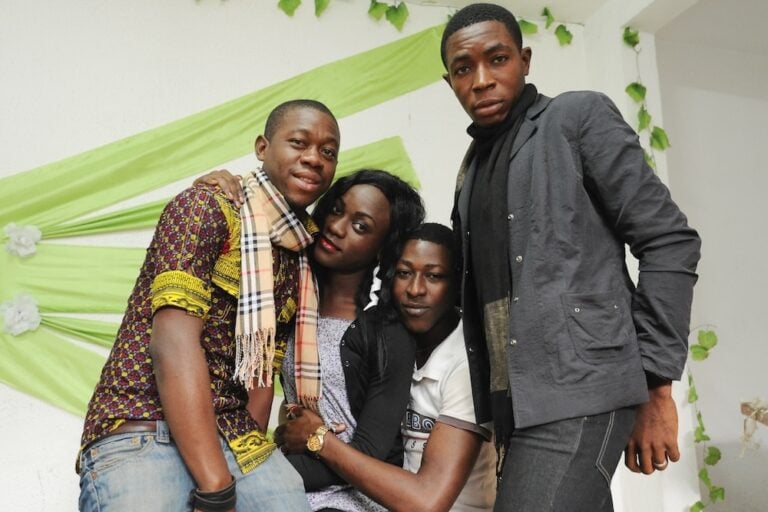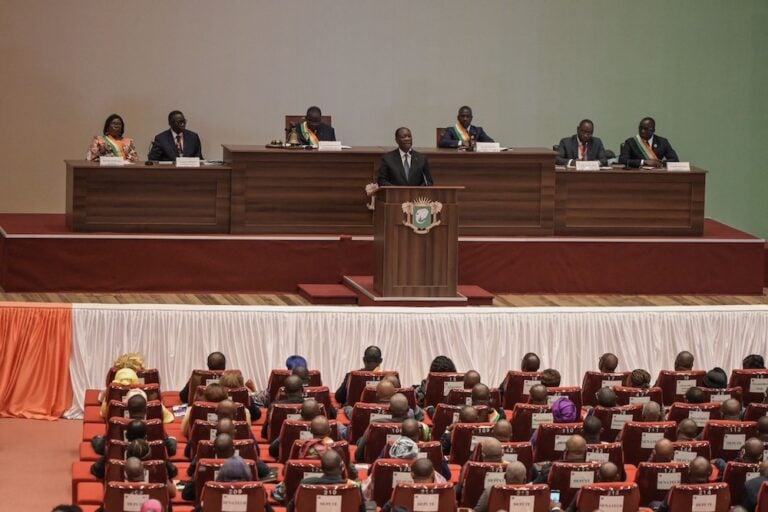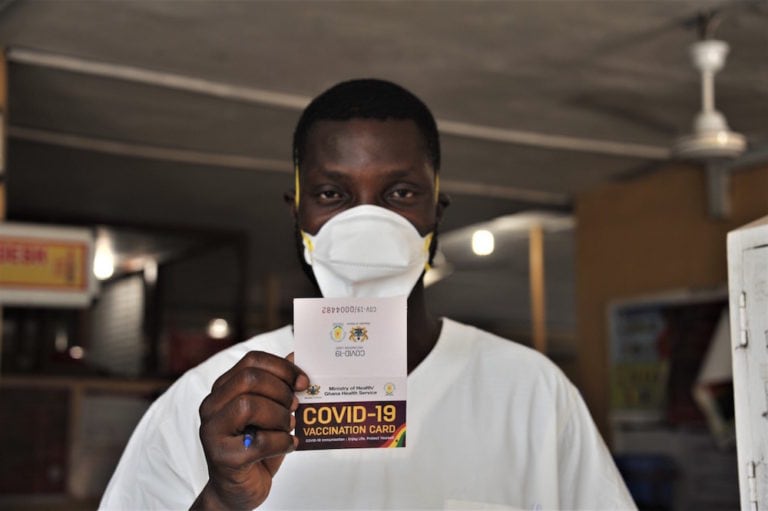(RSF/IFEX) – RSF has condemned the latest campaign of censorship and intimidation against opposition news media. In recent days, gangs of young people have been roaming the streets of Abidjan, threatening and attacking street vendors who sell opposition newspapers and tearing up copies of the newspapers targeted. The violence began three days after an anti-rebel […]
(RSF/IFEX) – RSF has condemned the latest campaign of censorship and intimidation against opposition news media. In recent days, gangs of young people have been roaming the streets of Abidjan, threatening and attacking street vendors who sell opposition newspapers and tearing up copies of the newspapers targeted.
The violence began three days after an anti-rebel movement known as the National Federation of Côte d’Ivoire Fora and Parliaments (Fédération nationale des agoras et parlements de Côte d’Ivoire, FENAPCI) called for the “withdrawal from the market” of all newspapers that support the rebellion and the G7 opposition coalition, “until the disarmament.” FENAPCI is claiming to defend “constitutional legality.”
“We protest these illegal raids, because tolerating this kind of political censorship encourages arbitrary power,” RSF said. “We expect the Ivoirian government to take steps to punish this behaviour and the groups involved, and to guarantee the diversity of the Ivoirian press.”
The organisation pointed out that Article 9 of the Constitution’s first chapter states that free expression is “guaranteed to everyone, subject to respect for the law, the rights of others, national security and public order”.
“Those who instigated this censorship by means of vandalism should bring it to an immediate end since they profess their attachment to ‘constitutional legality’,” RSF added.
The decision to launch the campaign of violence was taken on 23 October 2004, at an extraordinary general assembly of FENAPCI members in the Abidjan district of Cocody.
Interviewed by the daily “L’Intelligent d’Abidjan”, FENAPCI President Idriss Ouattara said he and his “comrades” could “no longer accept that these newspapers continue to sing the praises of the rebels and the G7 on our territory,” and that FENAPCI “no longer want to see these newspapers.”
Beginning at 7:30 a.m. (local time) on 26 October, several groups of young individuals describing themselves as “members of civil society” accosted newspaper vendors in the Abidjan districts of Yopougon, Port-Bouët, Adjamé, La Riviera and Cocody. They threatened the vendors and told them to stop selling “Le Patriote”, “Le Nouveau Réveil”, “Le Front”, “24 Heures” and “Jour plus”. The youths also tore up all the copies of these newspapers that they came across.
When reached by RSF, editorial staff at “Le Patriote”, “Le Nouveau Réveil”, “Le Front” and “24 Heures” confirmed the many attacks on vendors, especially in the district of Yopougon, a FENAPCI stronghold. “Le Patriote” staff said two of its vendors, Lamine Tierno and Apollinaire Kouassi, had been badly beaten.
A vendor in Port-Bouët named Diallo told RSF, “They told me not to sell certain newspapers. I asked why. They told me I was being stubborn and tore everything up.” A similar group accosted a vendor in Cocody. “They arrived and started tearing up all of the opposition newspapers and some other independent newspapers,” he explained. “They gave no explanation. I later realised they were targeting the newspapers that they consider to be the supporters of Forces Nouvelles,” he added.
A gang member encountered by an RSF representative on an Abidjan street said the operation was called, “Remove pro-rebel newspapers from the retail circuit,” while adding, “The newspapers that were torn up defended rebels who refuse to lay down their arms. It is unacceptable that newspapers continue to support them in articles by people who have decided to burn Côte d’Ivoire. This action is just the beginning of other, more energetic actions that will begin in the days ahead.”
On 25 October, Edipresse, a company that distributes newspapers and magazines, decided to suspend distribution of its publications in Agboville (north of Abidjan), and in the southwestern towns of Gagnoa and Soubré for fear of violent reprisals.


